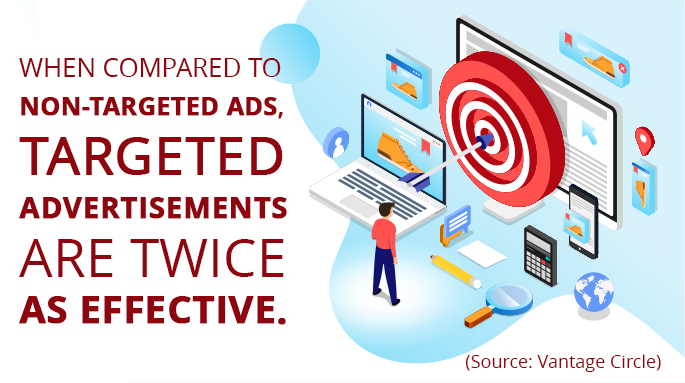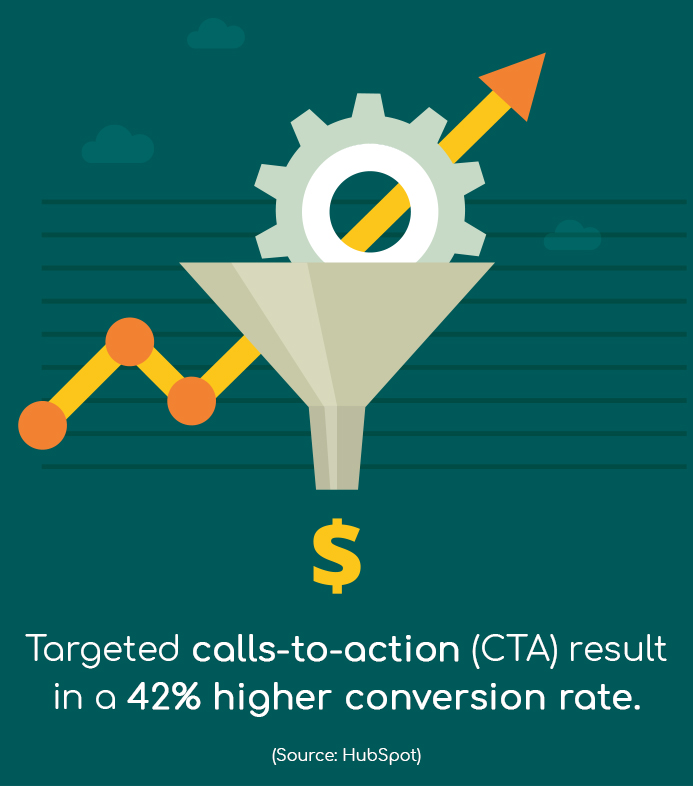Are You Targeting the Right Patients?
Posted on
Getting your services in front of the right target audience is vital. In order to do this, you need to start by understanding who your potential patients are and why they are likely to choose your practice over your competitors.
When it comes to healthcare marketing, if you are trying to reach out to everybody, you are going to have a difficult time conveying your message. Generic and vague messages will be less likely to resonate with audiences than direct and specific communication, which is why targeting in healthcare marketing is essential.
What is target healthcare marketing?
Target healthcare marketing is a strategy that breaks a large potential market into smaller segments in order to help marketers concentrate on a specific group of patients. It defines a segment of potential patients based on their characteristics and focuses purely on serving them. This means instead of trying to reach the entire potential market, a medical marketer uses target marketing to put his or her energy into connecting with a specific and defined set of people within that potential market.

Target markets are often segmented by characteristics such as:
Demographics – gender, age, education, race, marital status, religion, etc.

Psychographics – beliefs, values, interests, lifestyle, personality, etc.
Business – industry or vertical
Geographic areas – city, area code, neighborhood, region, country, etc.
Through the market segmentation strategy, healthcare brands get specific information about their target market. They can focus on a small group of potential patients who will be most likely to benefit from and enjoy their services.
Why is target marketing important?
Target marketing is important because it is a part of a holistic healthcare marketing strategy. It impacts branding messages, advertising and patient experience as well as ensures business operations. By practicing target market segmentation, your medical practice can achieve the following:
Speak directly to a specific set of people: Healthcare marketing messages resonate deeply with audiences when they can relate directly to the information. Medical practices that have a large and varied market of patients often struggle with creating campaigns that speak effectively to their audience.

Because their audiences are different, few messages can resonate with each patient on a personal level. Through target healthcare marketing, you can eliminate this problem and focus on crafting personalized messages for a specific audience.
Attract and convert qualified leads: When you speak directly to the audiences you want to target, you will be more likely to attract the right kind of leads. Your marketing messages will reach the people most likely to visit you. When you connect with the right people, you will be more likely to attract high-quality leads that will convert into paying patients.
Differentiate your practice from rivals: When you stop trying to connect with every potential patient in your market and start focusing on a specific segment of the audience, you will cut through the noise and stand out from competitors.

When potential patients can identify with your brand and your unique selling proposition (USP), they will choose you over a competitor who is not speaking directly to them. You can use your position in marketing to make your healthcare brand more unique and popular.
Build patient loyalty: The ability cut through the noise and stand out from competitors by reaching potential patients on a personal, human level creates longer-lasting relationships. When patients identify with your brand and feel like you understand their specific needs, they will likely be more loyal to your practice and continue to visit you over a longer period.

Improve services: Knowing your patients more intimately helps you look at your services in a new way. When you have a deep understanding of the needs of your target audience, you can put yourself in their place and see how you can improve your services. You can see what services you can add to better serve your patient base.
Stay brand-focused: Target marketing allows you to get specific about healthcare marketing strategies, direction and initiatives for your brand. It helps you refine your vision and get the entire team on the same page. You have more clarity when it comes to shaping plans for marketing and the brand as a whole. A focused approach will help you optimize your time, resources and budget.
How can you use target marketing to improve strategy?
Now that you know what target marketing is and how it can help your medical practice, let us look at how you can execute target marketing strategies. Here are a few channels your brand can adopt.
Marketing communication: You can improve marketing messages by using the tone your audience understands. When you know the unique needs of your audience, you know the correct ways to write content for your website, create posts for social media and use words that connect with your target audience.
Content marketing: You can produce valuable, targeted content by focusing on your target audience’s unique needs. This means instead of focusing on creating generic blogs, e-books and infographics that your audience might not even notice, improve your healthcare content marketing efforts by creating content that targets their specific needs and wants.
Search engine optimization (SEO): You can improve the chances that your target audience will find your brand via search engines by optimizing content for the relevant keywords that your audience might use. Targeting will help you identify the phrases and words potential patients might use so you can drive traffic to your website.

Paid search: You can also drive traffic to your website by targeting the keywords through paid search. Try focusing on the keywords you have identified through your market research to attract your target audience at the time when they are ready to try your services.
Email marketing: Use targeting to send emails to the right people, with the right content and at the right time for their specific stage of the purchase funnel. Using the information you have about your target audience, outline their decision process and identify the instances where you can use emails to guide them through their patient journey.
Display ads: You can use your knowledge of the audience to identify online platforms where you should place display ads. Just make sure you choose to advertise only on the sites where you know your target audience visits often and is more likely to notice your ads.

Blogging: You can catch your target audience’s attention by guest posting on sites you know your ideal audience visits often. Use valuable information about your audience to find guest blogging opportunities that will put your healthcare brand in front of your target patients.
Improve Your Target Marketing Strategies Today
Targeting in healthcare marketing serves brands and patients. It improves healthcare marketing strategies and patient experiences, builds brand awareness, improves patient loyalty and leads to better services. In addition, target marketing makes it easier for medical practices to reach target audiences in an authentic and more personalized manner.
So, if you are struggling to stand out in a sea of healthcare practices and brands, try using these tactics to grow your practice and connect with more patients. You can also consider getting help with launching your target marketing strategies by contacting one of our healthcare marketing experts.

 Why Good communication Matters in Healthcare
Why Good communication Matters in Healthcare De-Escalation Tips for Handling Aggressive Patient..
De-Escalation Tips for Handling Aggressive Patient.. Reaching The Right Audience Through Target Marketi..
Reaching The Right Audience Through Target Marketi..